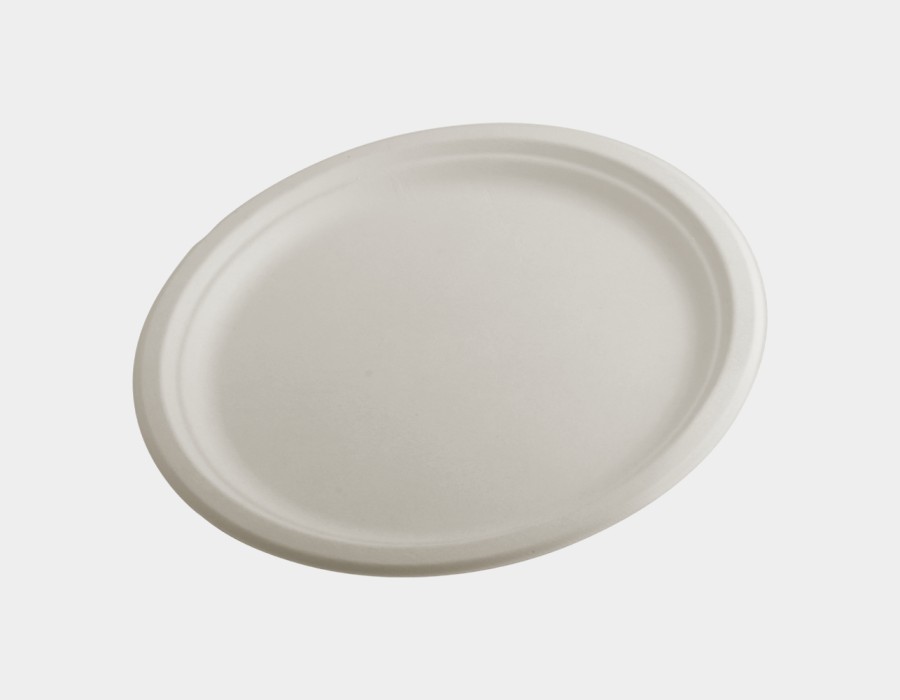As restaurants across the United States strive to adopt sustainable practices, one major area of focus is disposable tableware. For eco-conscious establishments, choosing biodegradable disposable tableware is a crucial step toward reducing their environmental footprint. However, with a variety of materials and products available, selecting the best options can be overwhelming. This guide will help restaurant owners make informed decisions when selecting biodegradable disposable tableware that fits their needs, budget, and sustainability goals.
Understanding Different Biodegradable Materials
The first step in choosing the right biodegradable disposable tableware is understanding the materials used. The most common materials include:
- Bagasse: Made from sugarcane fiber, bagasse is a highly popular biodegradable option. It's sturdy, heat-resistant, and compostable, making it ideal for restaurants that serve both hot and cold dishes.
- PLA (Polylactic Acid): PLA is a plant-based plastic alternative derived from corn starch. It's commonly used for cold beverages and utensils. PLA is compostable in industrial facilities but is not suitable for high-heat foods.
- Bamboo: Known for its renewable properties, bamboo is used to create durable, biodegradable plates and cutlery. Bamboo products are strong, making them perfect for both upscale and casual dining settings.
By selecting tableware based on material properties, restaurants can align their offerings with their menu and guest preferences.
Consider Functionality and Durability
When choosing biodegradable disposable tableware, it's essential to consider how well it holds up to different types of food. For example, restaurants that serve greasy or oily dishes may need tableware with a grease-resistant coating to prevent leaks. Similarly, dishes with sauces or hot meals will require products that are heat-resistant and sturdy enough to withstand cutting.
Products made from bagasse or bamboo typically offer more strength and heat resistance, while paper-based options may be better suited for lighter fare such as salads and sandwiches. Matching the tableware’s functionality with your menu items ensures a positive dining experience for your customers while remaining environmentally responsible.
Eco-Friendly Certifications and Standards
To ensure that your biodegradable disposable tableware is truly eco-friendly, it's crucial to look for certifications from reputable organizations. Certifications such as BPI (Biodegradable Products Institute) or USDA BioPreferred verify that products meet compostability standards. Choosing tableware with these certifications ensures that your restaurant is contributing to a genuine reduction in waste and environmental impact.
Additionally, opting for products that are industrially compostable can benefit restaurants in urban areas where composting facilities are available. By using certified compostable tableware, you can encourage responsible waste disposal practices among both staff and customers.
Balancing Cost with Sustainability Goals
While biodegradable disposable tableware may come at a higher upfront cost compared to traditional plastic or foam products, the long-term benefits far outweigh the investment. Restaurants that prioritize sustainability not only attract eco-conscious diners but also reduce their carbon footprint, creating a positive impact on the environment.
To balance cost with sustainability, consider purchasing biodegradable disposable tableware in bulk. Many suppliers offer discounts for wholesale purchases, making it a cost-effective solution for restaurants aiming to go green. Additionally, promoting your restaurant’s eco-friendly initiatives can drive customer loyalty and increase business from sustainability-minded patrons.
Conclusion: A Win-Win for Restaurants and the Planet
Selecting the best biodegradable disposable tableware for your restaurant is more than just a trend—it’s a long-term investment in sustainability and customer satisfaction. By understanding the materials, ensuring functionality, seeking eco-friendly certifications, and balancing costs, restaurants can provide a dining experience that aligns with their commitment to the environment. As the demand for sustainable dining continues to grow, adopting biodegradable options will set your restaurant apart and contribute to a greener future.





Comments